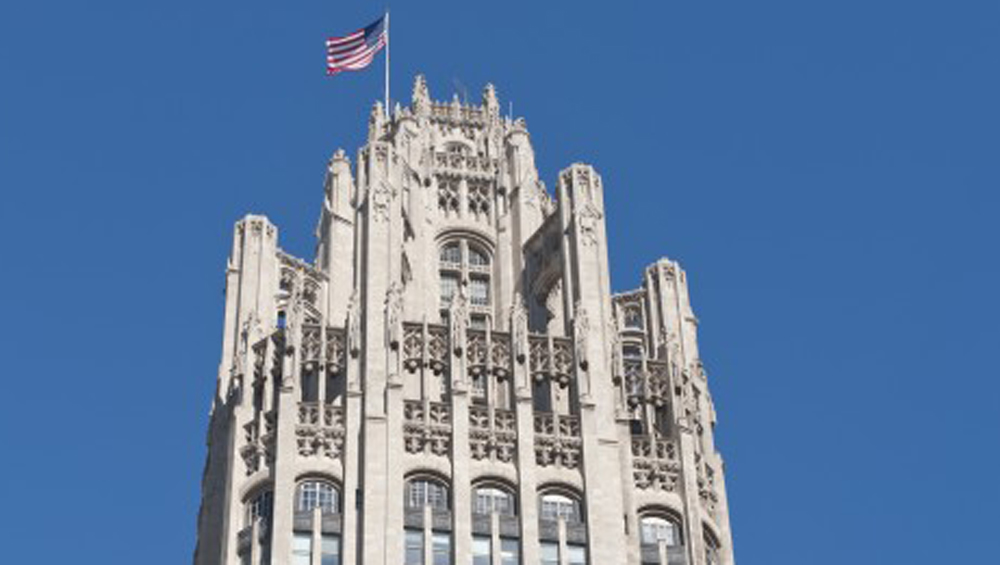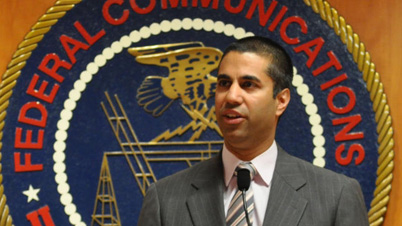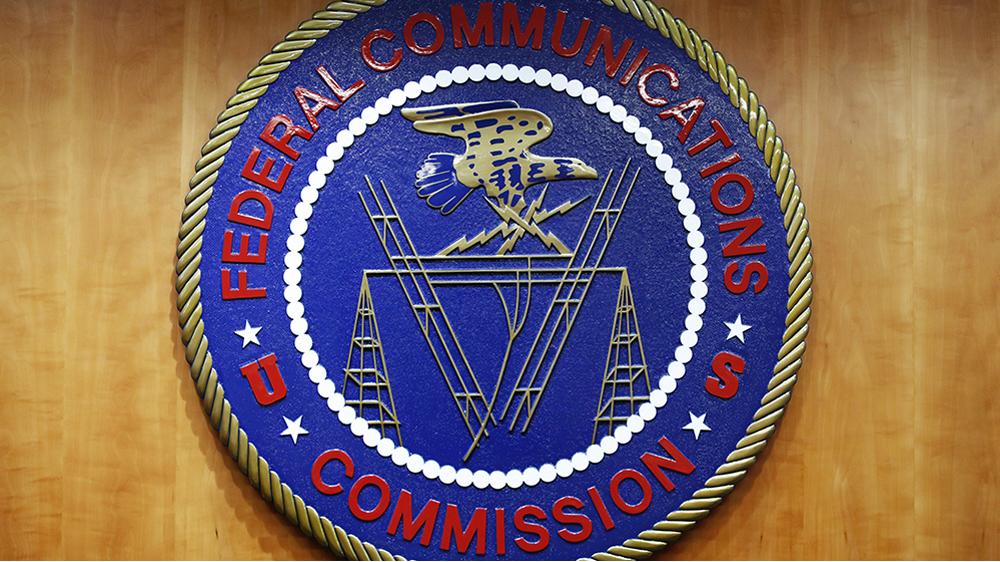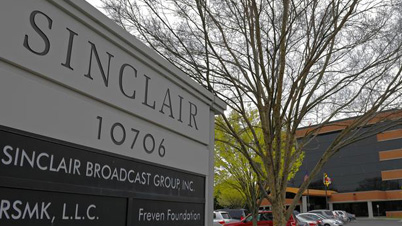The FCC’s internal watchdog found no evidence of a “concealment or cover-up” by Chairman Ajit Pai on interactions with the White House related to the failed Sinclair-Tribune merger.
Following the collapsed merger and $1 billion lawsuit Tribune filed against Sinclair, Sinclair filed a countersuit, claiming that “Tribune, through its meritless lawsuit, is seeking to capitalize on an unfavorable and unexpected reaction from the [FCC] to capture a windfall for Tribune.”
Ranking Energy & Commerce Committee member Frank Pallone Jr. (D-N.J.) has asked FCC Inspector General David Hunt to investigate what he said was FCC Chairman Ajit Pai’s failure to disclose a conversation he had with White House General Counsel Don McGahn about the Sinclair-Tribune merger, suggesting it could have been a “coverup.” An FCC spokesperson says partisan Democrats are trying to beat a dead horse.
FCC Chairman Ajit Pai told a Senate panel Thursday that Don McGahn, the White House counsel, called for a “status update” on the agency’s action on the deal on July 16 ot 17. Tribune scrapped the deal on Aug. 9.

The FCC’s Enforcement Bureau says it has no issue with the FCC’s administrative law judge terminating a hearing into Sinclair’s representations about the now-imploded Tribune deal, though that apparently has not happened yet. An FCC spokesperson confirmed the decision to cancel the hearing would have to come from the ALJ.
Jessell: Tribune Starts Over, Sinclair Digs Out

Following the spectacular collapse of their merger, Tribune and Sinclair have to go back to work. For Tribune, that means putting up the “For Sale” sign again, with plenty of interested buyers out there. For Sinclair, things are ominous. First it must settle Tribune’s billion-dollar lawsuit, and then find a way back into the FCC’s good graces. That could prove costly, too.

It says Sinclair broke its merger agreement by proposing “extremely risky and highly controversial divestitures to buyers that were specifically disfavored by the FCC staff,” deliberately omitted material facts from FCC applications and generally antagonizing “the regulators at both DOJ and the FCC while seeking their approval.”

At the same time as it ends the $3.9 billion deal, it files a lawsuit seeking compensation “for all losses incurred as a result of Sinclair’s material breaches of the merger agreement.” It also releases its second quarter earnings results that included Television and Entertainment segment revenues of $486.4 million, up 4% from $466.1 million in 2Q 2017.
Wednesday is the first day Tribune can walk away from the $3.9 billion deal that would give the already huge local television company an even broader reach into American living rooms. With Sinclair stuck in regulatory limbo, analysts expect Tribune to seek another buyer. Wednesday was the deal breakup date specified in the original merger agreement. Sources at both companies said Tribune is likely to walk away.

Donald Trump has not contacted the FCC about its lack of approval for Sinclair Broadcast Group’s proposed deal to buy Tribune Media, which Trump has called “disgraceful” on Twitter, FCC Chairman Ajit Pai says.

The FCC on Thursday published its order calling for a hearing on the proposed $3.9 billion Sinclair Broadcast Group acquisition of Tribune Media. Sinclair revised the proposed deal on Wednesday after FCC Chairman Pai expressed concerns over some station spinoffs. To no avail. In today’s order, the FCC said: “Material questions remain because the real party-in-interest issue in this case includes a potential element of misrepresentation or lack of candor that may suggest granting other, related applications by the same party would not be in the public interest.” That could spell big trouble for the station group that goes far beyond the current proposed deal.

The FCC said late on Wednesday it had voted unanimously to refer Sinclair Broadcast Group’s $3.9 billion acquisition of Tribune Media to an administrative law judge, a blow to the firms’ chances of winning approval. The decision came the same day Sinclair announced it was changing some of the divestitures proposed in the deal; it withdraw the proposed sales of KDAF Dallas and KIAH Houston to Cunningham Broadcasting.

In response to FCC Chairman Ajit Pai’s concerns, the company says it will withdraw the proposed sales of KDAF Dallas and KIAH Houston to Cunningham Broadcasting.
It says it “expects to work with the FCC to explore ways to address the concerns identified,” adding that “until we have reviewed the order it is difficult to explain the potential issues it might create for the transaction.”

The company said it has been completely transparent in dealings with the commission over its proposed Tribune merger. Even worse, Reuters reported that it had seen a draft of the hearing order that suggested that the Sinclair merger proposal may “involve deception” and that is a violation that could not only scuttle the Tribune deal, but also could result in the loss of all its station licenses.

A draft FCC order seen by Reuters on Monday said that Sinclair Broadcast Group Inc.’s application for approval to purchase Tribune Media may “involve deception.” The order said that “Sinclair’s actions here potentially involve deception” and noted possible “misconduct.”
Sinclair was vigorously defending its proposal to buy Tribune’s stations against all comers on July 5, responding to critics by telling the FCC that it is being asked to make decisions based on subjective disagreements over Sinclair content or views of a marketplace that no longer exists. In its reply to various petitions to deny the deal at the FCC, Sinclair said that critics seemed to think it was still a world with seven TV channels and phones are just phones rather than video access devices.
The cable group is concerned that Sinclair could use “after-acquired clauses” in Indianapolis and Greensboro, N.C., to raise retrans rates.
Sinclair Unveils Tribune Merger Spin-Off Plan
 Sinclair will sell WPIX New York and WGN Chicago — as well as KSWB San Diego to smooth the way for its purchase of Tribune’s stations, the station group says in a filing. But the stations will remain in the Sinclair orbit. A footnote to the filing says Sinclair “will enter into an option and services agreement(s)” with the buyer or buyers of the stations. In addition, it will spin off one of the two top-four stations it would own post-merger in seven markets — Seattle, St. Louis, Salt Lake City, Oklahoma, Grand Rapids, Richmond and Des Moines.
Sinclair will sell WPIX New York and WGN Chicago — as well as KSWB San Diego to smooth the way for its purchase of Tribune’s stations, the station group says in a filing. But the stations will remain in the Sinclair orbit. A footnote to the filing says Sinclair “will enter into an option and services agreement(s)” with the buyer or buyers of the stations. In addition, it will spin off one of the two top-four stations it would own post-merger in seven markets — Seattle, St. Louis, Salt Lake City, Oklahoma, Grand Rapids, Richmond and Des Moines.
 The FCC on Thursday suspended its review of Sinclair Broadcast Group’s proposed purchase of Tribune Media to give Sinclair more time to make the spinoffs and showings needed to bring the deal into compliance with FCC ownership rules.
The FCC on Thursday suspended its review of Sinclair Broadcast Group’s proposed purchase of Tribune Media to give Sinclair more time to make the spinoffs and showings needed to bring the deal into compliance with FCC ownership rules.
Senators led by Cantwell and Udall say there’s a troubling timeline and call for Pai to recuse himself from Sinclair-related business until the matter is fully investigated.
And maybe for Chicago and Los Angeles, the mega-station group says, but only if the FCC approves its merger with Tribune. Sinclair also says that post-merger it will distribute a Tribune morning show (Morning Dose) on some Sinclair stations and a weekly Sinclair news magazine (Full Measure) on all Tribune stations.
 The proposed $3.9 billion transaction has drawn fire from self-appointed “public interest” advocates who believe Sinclair is not committed to local broadcasting; cable and satellite operators who feel the scale will give Sinclair too much leverage in retransmission consent negotiations; and from T-Mobile, which believes Sinclair is trying to slow the repack of the TV band. Sinclair dismisses each of the charges in turn in an FCC filing.
The proposed $3.9 billion transaction has drawn fire from self-appointed “public interest” advocates who believe Sinclair is not committed to local broadcasting; cable and satellite operators who feel the scale will give Sinclair too much leverage in retransmission consent negotiations; and from T-Mobile, which believes Sinclair is trying to slow the repack of the TV band. Sinclair dismisses each of the charges in turn in an FCC filing.
House Democrats are demanding answers from the FCC about its “favorable treatment” of Sinclair Broadcast Group, which has been cashing in on a series of agency moves that are easing restrictions on its control of television stations. In a 12-page letter sent to Republican FCC Chairman Ajit Pai on Monday, Reps. Frank Pallone Jr. (N.J.), Mike Doyle (Pa.) and Diana DeGette (Colo.) seized on multiple media reports detailing how the agency has been delivering on Sinclair’s deregulatory wish list.
On Monday, an alliance of representatives from diverse corners of the media industry will come together to hold a press call announcing their FCC filings in opposition to the Sinclair Broadcasting-Tribune Media merger and reiterating their strong commitment to protecting independent local news. As a group, these representatives will call for the Sinclair-Tribune merger to be rejected.
Seeking class-action status, Tribune Media shareholder Sean McEntire accuses Tribune of giving stockholders incomplete and misleading information about the deal, including failing to provide portions of the companies’ financial projections, the value of another bid for Tribune Media and other details of the process leading to the merger agreement, according to court records.
Top executives at Tribune Media will take down millions in severance pay when its $3.9 billion merger with Sinclair closes, according to an SEC filing. Chief beneficiaries: General Counsel Edward Lazarus ($9.7 million), CFO Chandler Bigelow ($9.2 million) and broadcast chief Larry Wert ($7.8 million).











































